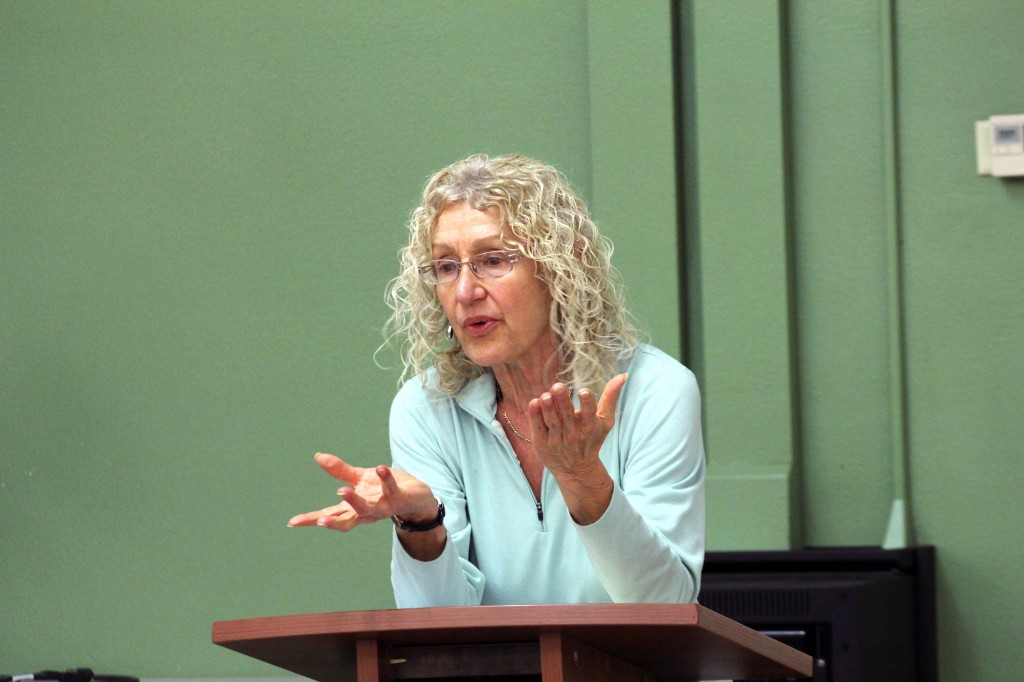
The way in which the international community assesses human rights violations may be insufficient for determining women’s rights violations.
Jean Quataert, a professor in the history department, joined Peace Action Binghamton University and the Women’s Student Union Monday night to put on a presentation detailing and criticizing women’s role in revamping how rights are defined in the international community. Quataert, a women, gender and sexuality studies professor and author on the subject of women’s rights across international borders, focused her talk on the rise of women’s advocacy and its influence on the sphere of international human rights.
“Global women’s human rights movement is something different. It’s truly global, it’s the first time in the history of human rights. You saw mobilizations around the globe, whether it be anti-apartheid or the tragedies in Latin America,” Quataert said.
According to Quataert, the beginnings of women’s advocacy began at the creation of the United Nations Commission on the Status of Women’s Rights in 1946. The division between that and the U.N. Commission on Human Rights, she said, created a divide distinguishing between human rights violations and women’s rights violations, but the movement didn’t come into fruition until the 1970s.
“It was interesting to hear her talk about how it developed, and how recent it was,” said Nick Doran, a freshman majoring in economics. “Listening to history class you’d think it happened in the 1800s, with suffrage. But her saying it started in the ’70s through ’90s was really interesting.”
Gabrielle Schiller, Peace Action BU’s educational director and a sophomore majoring in nursing, said she thought that this discussion was especially pertinent.
“It’s National Women’s History Month, it’s a great way to honor it,” she said. “We’re a peace organization, and incorporating women’s rights and international human rights is a great way to combine peace action and history, and what we stand for as a club.”
According to Quataert’s analysis, distinguishing between human rights violations and women’s rights violations became a contentious issue, and remains so today.
“Most of the activists in the pre-1945 era felt they needed a distinct body as they were afraid they would be a small percentage and might have been submerged,” Quataert said. “The problem is marginalization. Institutional division between human and women’s rights, creating two different jurisdictions.”
The way the U.N. assesses human rights violations is usually based on a man fighting for his rights, and then addresses these problems through legislative and political means.
However, Quataert argues that women’s issues must be addressed differently because how a society treats its women is often considered a “domestic” issue, a matter of culture and norms.
Quataert argued that there are problems with the way the world gauges and addresses both human and women’s rights violations.
“The goal was seeing men and women as the same, but taking into account gender and gender vulnerabilities, then you can decide policies the complexities of human lives,” Quataert said. “The critique of the public and the private, the most important critique feminism has made to political theory. They don’t exist as separate spheres.”
For Mallory Schmackpfeffer, a sophomore majoring in English, this event exposed people to an issue of which many might be unaware.
“Spreading the information and making people more aware of women’s roles in human rights,” Schmackpfeffer said. “It’s not something that’s often talked about.”


